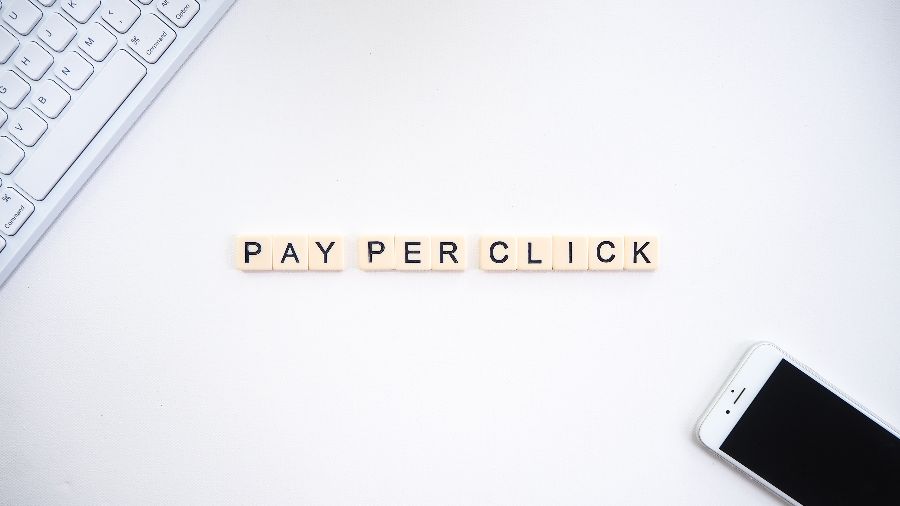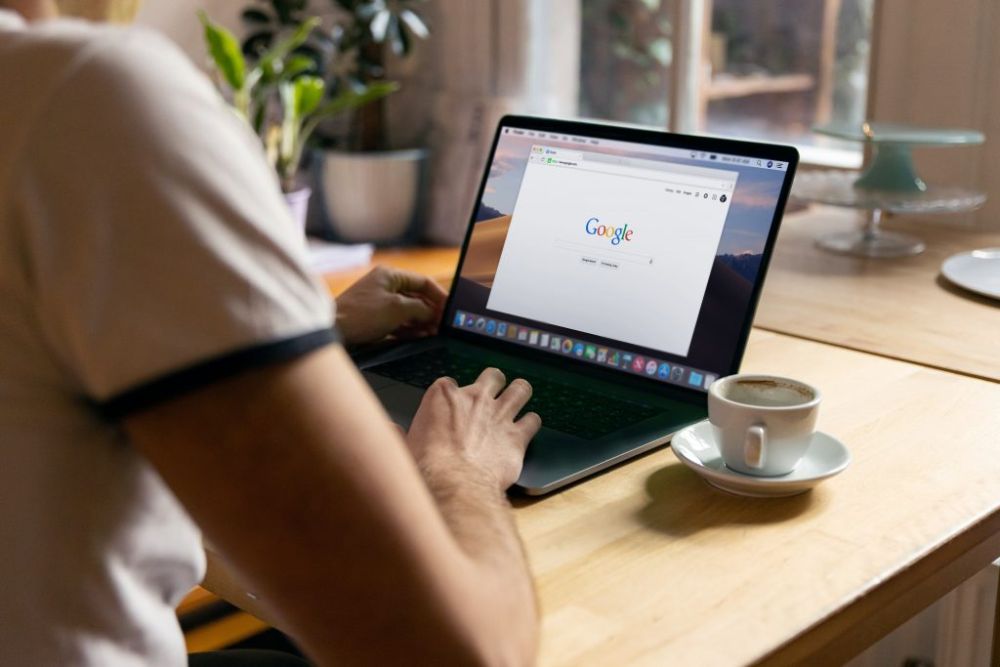
PPC is a staple part of many digital marketing plans – but is it inbound or outbound marketing?
Pay Per Click advertising is an integral part of any solid marketing strategy. By placing your brand front-and-centre, you can gain more visitors and create better conversions than you could with SEO alone. But when it comes to implementing this method as part of your digital marketing strategy, is PPC inbound or outbound marketing?
A few years ago, the answer to that question may have been a little different. But with opinions and perspectives on PPC rapidly changing, it’s worth looking at why PPC isn’t all it once appeared to be.
Table of Contents
Defining PPC and inbound marketing
Before we get into the details of how PPC works and what marketing camp it falls into, we should cover the fundamentals of what these marketing keywords mean. Here’s what we’re talking about when discussing whether PPC in inbound or outbound marketing:
What is PPC?

PPC stands for Pay Per Click advertising, a paid method to help potential customers find your website on search engines like Google and Bing. The basics of PPC are that you pay a specific amount of money for your text-based ad to sit on top of particular keyword searches. For example, if you’re a company that sells cakes in Bristol, you might bid on the keyword ‘Bristol cake shop near me’ to get your business at the top of the results.
What is inbound marketing?
Inbound marketing refers to any strategies that organically bring your brand to your audience. There’s a vast array of different inbound marketing components, from SEO and press to social media content creation and blogging.
Marketing is inbound if a potential customer can find your website when they actively go looking for information or a product. You aren’t forcing the advertisement of your brand on them and instead let your reach grow naturally, which is why the term ‘organic’ is often used in inbound marketing.
What is outbound marketing?
Outbound marketing is the more aggressive form of marketing, where you are getting your product or service in the face of potential customers to get their attention. Paid adverts on social media, trade show booths, TV and radio advertisements and banner and display ads are all forms out outbound marketing. The point of this kind of marketing is often to make it so your customers can’t avoid your brand.
Interruption marketing: the new generation of outbound marketing
If you’ve researched outbound marketing in recent years, you may have come across the term ‘interruption marketing’. As a new way to describe outbound strategies, interruption marketing is what it says on the tin. It is marketing that’s loud, in your face and explicitly designed to interrupt what your audience is doing to make them pay attention to your brand.
Read More: The difference between inbound and outbound marketing
PPC: inbound or outbound marketing?

So, is PPC inbound or outbound marketing? The answer may surprise you.
While PPC is paid-for marketing, this doesn’t necessarily land it neatly in the outbound category. No marketing is truly free, so it’s not as easy as saying paid is out, and unpaid is in.
According to today’s experts, PPC lands firmly in the inbound marketing category for one excellent reason.
While PPC may be paid, it doesn’t provide the same interruption marketing as most outbound strategies. PPC is a form of marketing that users have to search for specifically, so it’s a requirement that your audience puts in the work first to find your paid ad.
Unlike banner ads that follow potential customers around the web or TV and radio ads that can’t be avoided, PPC helps customers precisely when they want to be helped.
While that may sound confusing, it’s simpler than you might think. For example:
Say you have a brand that sells alpaca wool scarves online. If you create PPC advertisements for ‘warm alpaca wool scarves’, your potential customers will have to type in those keywords to find your advert, leading to your website.
PPC is organic in that searchers have to take the first steps (even if clicks from paid-for ads don’t count as organic traffic in terms of SEO). Your marketing strategy is focused on making it easier for your website to be the one they click on when they go looking for something to buy.
How does search marketing work with inbound marketing?
If we think of inbound marketing as marketing used to draw customers in organically and of their own free will, PPC has a few powerful uses:
1. Targets interested users: PPC allows you to attract potential customers who are already actively searching for the products or services that you offer. By targeting specific keywords and demographics, you can ensure that your ads are being seen by the right people at the right time.
2. Improves brand awareness: PPC can improve the visibility of your brand in certain areas. If SEO keywords aren’t doing the work, PPC is an excellent supplementary way to step up to the same level of your competition as and when needed.
3. Provides useful insights: PPC allows you to track and measure your results in real time. This means that you can quickly adjust your campaigns to optimise for better performance, and make data-driven decisions about how to allocate your budget.
4. Works alongside content marketing campaigns: PPC can help to drive targeted traffic to specific pages as part of a content marketing campaign. This could be an awareness campaign, a lead-gen magnet or simply to kick-start your blog traffic (more below).
How does PPC work with content marketing?
PPC, or pay-per-click advertising, can work hand in hand with content marketing to drive traffic and increase conversions. By strategically placing PPC ads that funnel traffic through to relevant content, businesses can attract the attention of their target audience and encourage them to click through to their website.
One effective way to use PPC with content marketing is to create ads that align with specific pieces of content on your website. For example, if you have a blog post about the benefits of your product, you could create a PPC ad that highlights those benefits and links directly to that post. This can help to drive targeted traffic to your site and increase engagement with your content.
Another approach is to use PPC to promote gated content, such as whitepapers or ebooks. By placing ads that offer access to these resources, you can attract leads who are interested in your industry or product, and collect their contact information for future marketing efforts.
Ultimately, the key to using PPC with content marketing is to ensure that your ads are relevant to your target audience and that they provide clear value and a compelling reason to click through to your website.
Read More: What is the difference between native advertising and content marketing?
Is PPC ever outbound marketing?
As with many things, PPC is contextual. This makes it somewhat of a grey area for adverts that don’t actually provide helpful insight into what a person is searching for. For example:
Someone searches for ‘how to clean their surfboard’. Advertisements for sites that sell brand-new surfboards appear. That information isn’t valuable for them at that moment, but an advert for surfboard cleaning products is. In that circumstance, it isn’t as clear-cut as search equals solution.
Over the years, Google has tailored and detailed its algorithms to the point that a lot of unhelpful content doesn’t appear to its audience. So, if you’re still using PPC as an outbound strategy, it’s likely you’re missing out on all the benefits that PPC inbound marketing can bring. If you haven’t yet felt the effects of ever-changing algorithms, you might soon.
The takeaway: Is PPC inbound marketing or not?
Modern PPC may still be just over the line, but there’s no doubt that Pay Per Click is closer to inbound marketing than it ever has been in the history of digital marketing.
As a part of a broader strategy, and with a change in perspective to non-interruptive marketing, PPC can hold its own to bring in potential customers and get your brand seen by the right people.
If you’re planning to invest more into your inbound marketing and your SEO is already solid, PPC is an excellent route to go down. With the proper insight and clever planning, organic PPC is more feasible than ever before.
✏️If you’re thinking of boosting a content marketing campaign with PPC, partnering with a copywriting agency like Copify could help bring it all together.
